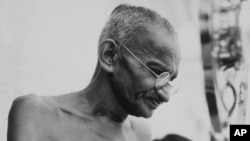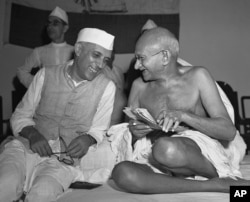On January 30, 1948, a Hindu extremist waited quietly in Biria House gardens in New Delhi, India, where the ‘Mahatma’ was scheduled to lead early evening prayers.
Moments after the revered activist was escorted through a crowd, the assassin walked towards Gandhi and, at a range of just one meter, fired his gun three times, killing the man who led India’s historic revolt against British rule.
He was 78 years old.
Later, Prime Minister Jawaharlal Nehru gave a radio address to the nation. His voice choked with emotion, Nehru said “ the light has gone out of our lives; there is darkness everywhere.”
The fight for independence from Britain had been won in 1947. But partition - the movement to carve out a separate Muslim state - took hold, and when the British withdrew, two separate states - Pakistan and India - were born amid a deadly campaign between Muslims and Hindus.
Gandhi was deeply opposed to partition. Indeed, his assassin was driven by what he saw as Gandhi’s unacceptable tolerance towards Muslims.
Gandhi’s non-violent campaign of civil disobedience became a model that influenced other famed activists around the world, most notably Martin Luther King Jr., who led the movement to end racial segregation in the United States. His life also inspired the 1982 Hollywood movie Gandhi, starring Ben Kingsley.








Facebook Forum